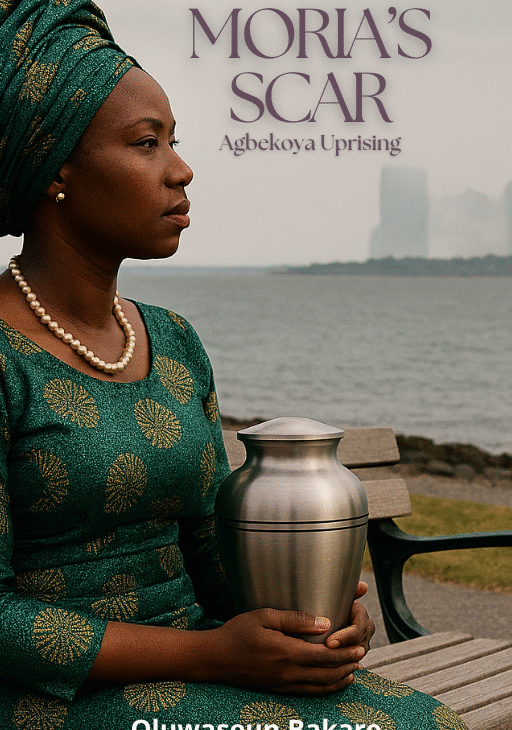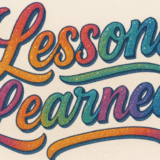The Man Died

It was a different Moria and a different Erik that sat opposite each other. The only thing that has remained unchanged is the location, the quaint restaurant in which they had met twice previously.
In two weeks, Moria had shed a spiritual skin; her appreciation for the dynamics of the Agbekoya Uprising—which had caused her so much pain—had replaced her hatred. She could finally explain what happened and why it happened.
For Erik, it had been two weeks of still knocking on heaven’s doors. He was profoundly pale, his body frail, and his scalp bare from the harsh regimen of chemotherapy.
They had greeted each other with a warm embrace before taking their seats, each privately relieved to see the other again. Breaking the silence, Erik took a sip of his coffee and grimaced.
“It tastes like shit,” he muttered, setting the mug down. “Everything does nowadays. Never let them lure you into having chemotherapy, Moria. It changes everything.”
Erik struggled to get the words out. “So, what did you find out? How did your trip go?”
“Interesting. Very interesting,” Moria responded, and slid a copy of her manuscript across the table, all in a file she had labelled Agbekoya Uprising. “Here, in these pages, are the details I found out.”
Erik managed a tired smile. “You want me to read this? Is this hoping that my remaining time is best used in reading rather than saying my goodbyes? Why don’t you tell me—what were the highlights?”
This time, unlike the first meetings, Moria was the one talking. Erik listened, occasionally interrupted by a low, dry cough or a sneeze.
“Erik, I must thank you,” she began, her gaze direct. “Thank you for freeing me from a bondage—the bondage of hatred for my people, my nation. Until we met, I was deeply pained by the events that separated me from my parents. But now, I have a better understanding, and I have no morality to blame anyone for those events. Not even you.”
“Me?” Erik asked, genuinely surprised.
“You,” Moria repeated, leaning in. “What I found out was that the price manipulation by companies like your old one was a direct, perhaps distant, cause for the bloodshed at Mapo Hill, Olorunda, and all the places that struggled with the Agbekoya Uprising.”
She went on, describing the lives lost: the gruesome murder of the Soun of Ogbomosho, the kings who abandoned their towns, the Baale’s cocoa farms left to rot, and the devastating ripple effect the low prices had on the farmers that sparked the revolt.
“We talk about the tax revolt, Erik, but the real villain wasn’t only the Nigerian governor,” Moria concluded, her voice sharp with conviction. “It was a ledger in Zurich. You didn’t just lower the price of cocoa; you lowered the value of men’s lives. And when men lose their dignity, they reach for a weapon.”
It was a timely and cutting conclusion. Just then, Erik began coughing violently, spluttering as the coffee seemed to have gone down the wrong pipe. Moria’s anger vanished, replaced by a sudden, protective fear. She calmed him down, wiping his mouth with a napkin. With watery, red eyes, Erik managed a weak smile.
Instead of responding to the massive accusation Moria had just levelled at his old business, his mortality surfaced.
“Moria,” he rasped, his voice barely audible. “The prognosis has not been encouraging. I have been given one month to tidy up my affairs.”
Moria’s humanity completely overwhelmed her rage. Looking at the sight of the pale, frail man across the table, her ideological fight felt suddenly moot. She had often played out this encounter in her head, but she realised Erik was a man in need of help, not an interrogation.
Erik had not been clear about the Fajemirokun angle, and as much as she was moved to press harder and ask “who did it?”, she felt it was mute and had to let that go.
Erik muttered something incoherently and then stopped abruptly, replaced by a sharp, audible intake of breath that sounded less like breathing and more like torn fabric. His hand, which had been resting on the table, curled into a rigid claw, pressing hard against his sternum.
His face, already pale from the chemo, went instantly slack, then taut with a sudden, crushing terror. His eyes, fixed on the sugar dispenser, glazed over, and a cold sweat broke out across his forehead.
“Erik? Erik, Hey. What is it? What’s wrong?” Moria scrambled out of her seat, knocking her chair over.
Erik tried to speak, but only a wet, choking sound escaped his lips. He began to gasp, his shoulders rising and falling in frantic, shallow motions.
Moria didn’t hesitate. She grabbed her phone, her voice shaking but loud enough to cut through the cafe noise. “I need an ambulance, please! My friend… he’s conscious but struggling to breathe. We’re inside Balthazar’s at the harbour. Severe distress. Terminal cancer patient. Hurry please!”
The walk back from the harbour was a slow, heavy benediction. Moria was emotionally spent, yet buoyed by a fierce, quiet triumph. As she took the familiar path from the docks toward Castle Island, the only difference between today and the happier days in time past that she had done the walk was the polished, empty silver urn resting in her hands.
The urn, solid, heavy, was not the biodegradable type that funeral homes often offered. Carrying out Erik’s final wish—“Scatter my remains in the Atlantic, let me become free like a bird”— was challenging. The law required that cremated remains be scattered at least three nautical miles from land. How could she comply when she feared the deep and found boats frightening? A conflict had ensued within her.
A lifelong stickler for rules, she had found herself contemplating breaking the law, briefly considering emptying the contents into the waters of the bay under the cloak of night. But her better judgment and respect for Erik’s clear desire for true oceanic freedom had prevailed. She had chartered the boat, forced herself three nautical miles out into the frightening, rolling expanse, and finally granted him his release.
Now, with the vessel empty, she sank onto the old bench, the silver urn heavy in her hands, looking into the distance where the Atlantic swallowed the horizon. She thought of Erik, scattered now, floating free to different places.
She remembers the moment the doctor spoke his name; it was a dizzying, sweet-bitter memory.
“I am Dr Ayomide Hartfield. Unfortunately, we did all we could, but could not bring Erik back. Madam, I am so sorry for your loss.”
Grief had paralysed her, but that name, and the look in his eyes—it was the sign she had sought for years—the missing piece of her own soul.
“Sorry, did you say you’re Dr Ayomide?”
“Yes, ma’am.” Ignorant of the issue, Ayomide repeated, “We are extremely sorry for your loss, ma’am. We tried all we could but…”
She didn’t let him finish. In a surge of raw, desperate recognition, Moria launched herself from the chair, enveloping the young man in a bone-tight embrace, sobbing on his shoulder, soaking his pristine white lab coat.
Confused, perplexed, and afraid all at once, the young doctor didn’t know what to do. The wailing, he expected, but not the grabbing. And what was he to do with his white lab coat now drenched in tears?
“Ayomide, Ayo, Ayo my own Ayo,” Moria was shouting and sobbing. “I have looked everywhere for you. Oh my God, is this you?” She asked as she released the grip, holding the very confused young man by his two arms, looking into his fearful eyes.
“Erm… ma’am, I-I can understand that you’re in shock.” Dr Ayomide finally managed to choke out the words, smoothing the wrinkled, tear-soaked fabric of his coat. “If you’ll just let me… I can get someone from the bereavement services to come and attend to you.”
By this time, Moria was completely sure that this was her son, though the name Hartfield didn’t ring a bell. The man standing before him was the most handsome man she had ever seen – tall, muscular and cleanly shaven with a deep baritone voice that one could confuse with that of Barry White, the musician, her idol.
The fact of his presence eclipsed the impossibility of it all. It took a long, disorienting moment for the gravity of Erik’s death to pull her back to the present. Once she had explained who she was, Ayomide’s confusion dissolved into his own emotional revelation; his foster parents had never kept his adoption a secret. But he was on duty.
As lovingly as he could, he placed his right palm on Moria’s seated shoulder. “Ma, I have also been looking forward to this day,” he said, gently resting a hand on her shoulder. “But I still have to deal with Erik’s remains. I will go and complete that in respect to the soul of the departed.”
She urged him to go. She had been waiting years; a couple of hours was nothing.
Before leaving the hospital, she received the sealed envelope—Erik’s shaky, last-hour instructions. The key inside led her to his house, and inside a cabinet, she found the well-typed document naming her his sole heir.
It was classic Erik: a final, meticulously planned ambush. Beside the letter was the silver urn she had just emptied, and the receipt for his cremation. He left nothing to chance, yet he never spoke a word of it. The only cause for worry was the final note to call Saga Karlsson in Switzerland; she hadn’t been in Boston while Erik’s sickness progressed, and the unsettling omission of any mention of his own children.
These tangled threads of grief, inheritance, and startling reunion were a whirlwind in Moria’s mind as she sat on the bench, the empty urn now resting in her lap. She was lost in the chaotic beauty of it all until a slight cough announced a new arrival.
She looked up to see Ayomide standing there. He was no longer the conflicted doctor in the tear-soaked lab coat, but a man polished and refined, dressed in civilian clothes.
“May I take a seat by your side, ma’am?”
She could only nod, watching him with a mother’s awe.
They looked out at the warm, ceaseless waves of the Atlantic. The sea was no longer just the legally complex resting place for Erik’s ashes. It was the backdrop for her new beginning. Looking at her dress, one of those that had been given to her by Mulika, she suddenly remembered the innocent question she had asked:
“Are you married and do you have a family?”
Wiping a teardrop from her face, she looked at Ayomide, now seated beside her, the answer to that question.



